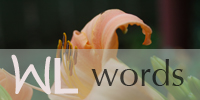I finally finished Cloudstreet by Tim Winton. My reading was interrupted a couple times — first I accidentally left it behind at a hotel room on one of my trips and had to wait for it to be mailed back to me over a holiday weekend no less, and then I took a break, at a different time, for a quick read when one of my recent garage sale purchases lured me irresistibly.
This was a slow starter for me, it took quite awhile to for me to get into it. Set in Perth, Australia, this book (432 pages) is spread over two decades (1940s to 1960s), spanning World War II and the Cuban Missile Crisis.
A point about the beginning: It was really sad at the opening (first 50-75 pages?), so sad that I almost had to put it down. I really don’t like sad books. In the way it started out so low, it reminded me of the movie Dan in Real Life. The beginning was just so sad, that I felt like I couldn’t invest myself in the story and its characters! This clouds my view of the whole piece, although it did improve as the book went along.
One thing that took some getting used to, for me, was that the quotes aren’t set off by quote marks, they’re just run into the text. No italics, either. I’m tempted to call that stream-of-consciousness, but I’m pretty sure that means something else. [OK, I had to go look it up. Apparently I’m not that far off.]
The book follows two families, who end up living in the same large house, which has been split in half to give each family some semblance of privacy. One of the features of this book that’s remaining in my head, that I’m still not sure what to think about, is how inanimate objects (i.e., the house) move and “communicate”. It’s hard for me to call it communication, since the message is rarely fully understood by the characters, or even always heard.
I was intrigued by how the book portrayed the two families, one that believed in God until its members experienced a horrible tragedy after which they all shook off the forms of religion and belief, and one that believed only in luck.
I did enjoy the fun words in the book — some of it’s how Winton has depicted the characters’ speech patterns, and some of it is Australian words that mean nothing to this North American.
Apparently (per Wikipedia) this book established/cemented Winton’s career as a writer.
I loved the setting and all the book’s interactions with it. It’s a novel place for me, and I love “visiting” new places. I really was drawn in by the novel’s place.
This book seemed a bit crass to me. It talks about sex in low ways. Not titillating, just a little bit disturbing.
This book is one of the books I’m counting toward my fulfillment of the tl;dr challenge (also known as Herding Cats). It was recommended by Vicky. I feel like I’m way behind on this challenge (this is my first completed book for the challenge), even though I have through November to read two more books from the list. It shouldn’t be hard. Hopefully I’ll get a post up soon about the challenge again — I know at least one of my recommendations has been read and reviewed! 🙂
This book is also one from the Top 100 list, that I’m slowly making my way through.
Disclaimer: This may be one of those books that while I didn’t love it immediately, I will grow to appreciate more over time. (Do other people have those?) I’m a bit worried that later I’ll look back at this review and wonder how I didn’t get it, and be sad that I spread such not-glowing words about Cloudstreet.














Interesting review. I agree with so much of what you felt about this book. Just when I finally started to like the book (and it took quite a while to get to that point) it started to degenerate. And it hasn’t stayed with me. I probably won’t read another book by him.
Good to know. Yeah, I’m certainly not ready to jump into all of Winton’s work right now, either.
Hey there, I’m Vicky! Thanks for reading and reviewing this, I’ve always been interested to see what other people think of Cloudstreet.
Like you, the setting of the novel drew me in; Perth is my hometown and I loved Winton’s portrayal of a place that I’m intimately familiar with. Therefore, the lingo made sense to me, the characters and what they went through were familiar people, and so on. ^^
When I first read this book, I hated it. The lack of speech marks irritated me, the crassness icked me, and most of all, I had to study it for my final year of high school. It was only after I left school and thought to re-read it that I appreciated the book a lot more- mostly for the location and a renewed appreciation of the sprawling story. I even took a better liking to the crassness, because, well… Australian culture and speech can be pretty crass. I guess I appreciated that things weren’t included to titilate or shock, but just there because that was part of life.
That said, I can’t stand reading anything else by Winton. =P
Hi, Vicky! I’m glad to hear your perspective!
Have you tried reading other Winton? Dirt Music won awards, right?
Pingback: In the Deep Midwinter by Robert Clark « Word Lily